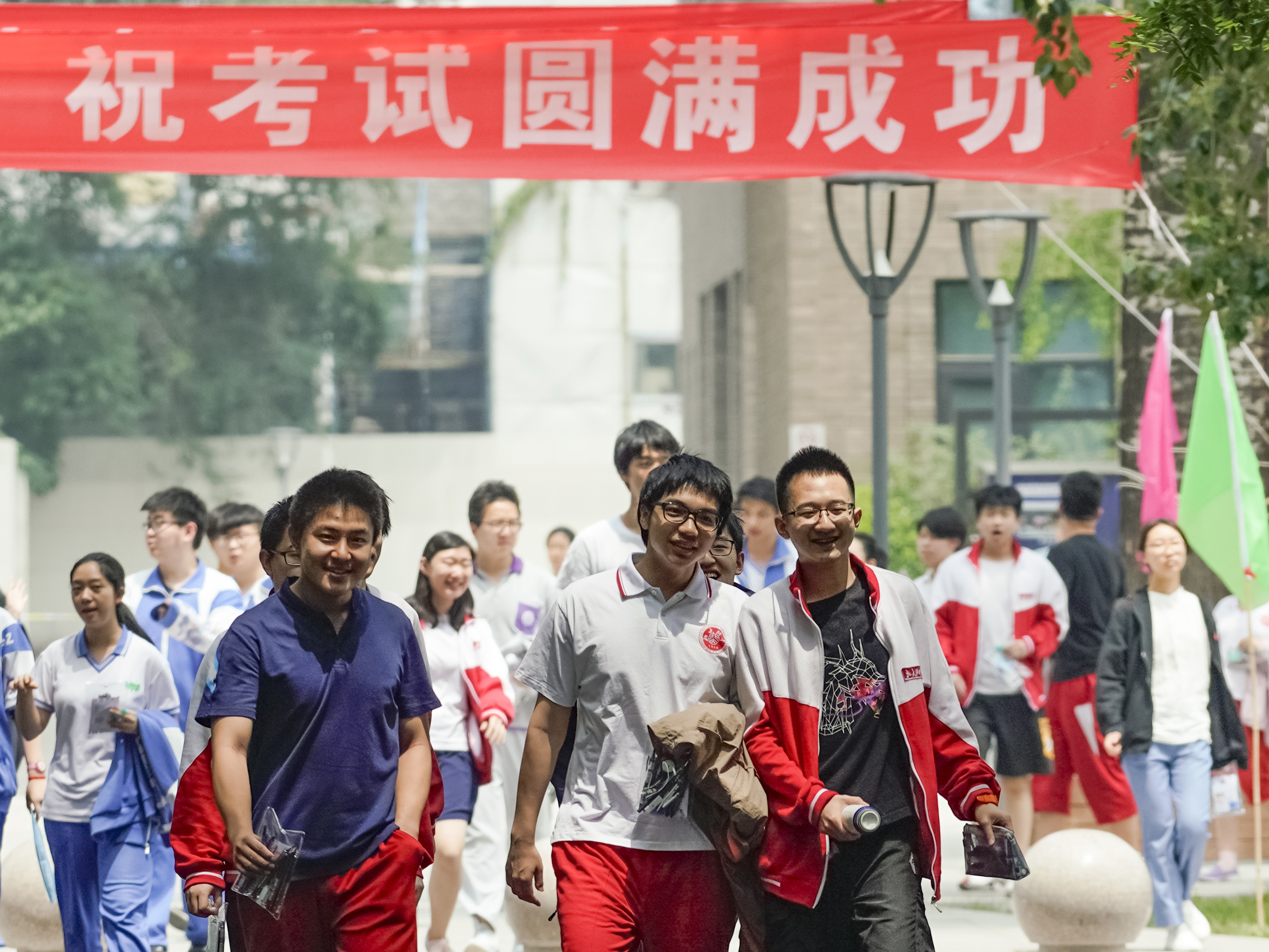Strengthening basic academic disciplines in China
- By Mathew Wong
 0 Comment(s)
0 Comment(s) Print
Print E-mail China.org.cn, March 2, 2020
E-mail China.org.cn, March 2, 2020

In January, the Ministry of Education (MOE) in China announced a new college enrollment plan starting this year, which revises and replaces the independent enrollment scheme of leading universities. The pilot "Strengthening Basic Disciplines Plan" will initially be rolled out in the country's top 36 universities, focusing on students with special talents in math, physics, chemistry, biology, history, philosophy and ancient characters. This proposed 2020 reform of the "gaokao" – China's national college entrance exam – has stirred up intense social debate since its release.
The gaokao is arguably one of the most significant and demanding exams in China. As part of the grand social institution, the gaokao and its reform are therefore not only closely related to the lives of several million Chinese – including both the candidates and their families – but can also have a significant impact on national development. According to the MOE, the pilot education plan focuses on selecting high-performing students with the aim of serving major national strategic needs and alleviating the shortage of talent in certain fields.
However, apart from its connection to national goals, a couple of questions are worth asking. How does the plan differ from the independent enrollment scheme? And, will it be seen as a positive change?
In 2003, in order to shift the overwhelming focus away from pure scores and results, the MOE proposed the independent recruitment plan, through which leading universities could recruit students based on their own subjective criteria. Normally, these schools preferred to select students with exceptional abilities in specific subjects, for example, those who ranked top in well-known science or sports competitions.
The evaluation process used an "application-based" scheme, under which some students could either gain admission without taking the gaokao, or be awarded bonus points in the exam, which to some extent was similar to the admission systems of some Western universities. The revolutionary scheme, it was argued, positively facilitates diverse, efficient and scientific progress in Chinese college admissions.
On the other hand, the scheme could potentially breed admissions malpractice, especially when compared with a standardized exam – even if it is a cutthroat and cruel one. In recent years, several bribery scandals have been reported which have caused significant damage to its social credibility.
The new pilot plan revises and efficiently plugs this loophole, requiring that the gaokao score must constitute part of students' evaluation (accounting for no less than 85%), alongside other components, such as discipline test results and overall high school performance. These prospective students are then expected to receive a more specialized education than their peers. For example, they could enjoy a smaller-size cohort, greater mentorship opportunities, better learning environment, and even greater chances of receiving scholarships and admission to graduate school.
However, some critics believe that this preferential treatment will further exacerbate the levels of inequality in tertiary education. Moreover, they have denounced both the independent enrollment scheme and the "Strengthening Basic Disciplines Plan" which they say indicate a trend towards elitism in society, embedded in "customized" college admission.
Educational inequality is a longstanding issue in China, and the divide between urban and rural students appears to only be getting worse. Many studies show that students from well-off families or big cities are more likely to be enrolled in top universities in China because of their privileged backgrounds and better resources. Critics believe that the new plan may not prove to be an efficient reform as most students are unconvinced and find it unattractive. Although it replaces the independent enrollment scheme, the plan itself only affects a small number of students and some top universities – thereby making little difference to the average candidate.
Despite the reform conundrum, the pilot plan nonetheless remains a critical step because of its emphasis on basic academic disciplines, some of which have been unpopular among college applicants for years. First, the plan greatly encourages students with an interest in researching basic subjects to better fulfill their potential. A common concern is that, graduates of humanities majors find it hard to achieve the same employment opportunities as those who study more "practical" majors, let alone obtain a well-paying job. As such, the plan and its favorable treatment could help relieve worries about earning potential experienced by students and parents, which is a very practical and real concern for many families. In the meantime, this plan can help solve the "admissions difficulty" for some graduate programs, such as archaeology, philosophy and history.
Finally, by selecting and cultivating talented students, the plan may boost national development, especially in the field of science and technology. According to the ministry, the plan will also focus on the fields of chip and software design, as well as new materials, thereby nurturing thousands of innovative talents currently in shortage.
No single education policy is capable of completely eliminating social inequality. A scientific and fair evaluation scheme should lie at the core in any educational reforms. In facing this dilemma, a good policy ought to actively respond to people's concerns, strive to solve existing problems, and more importantly, to further strengthen the notions of fairness and opportunities in college admissions. All these factors combined will help provide a brighter future not only for the next generation, but also build a competitive and powerful society.
Mathew Wong is an assistant professor in the Department of Social Sciences at the Education University of Hong Kong.
Opinion articles reflect the views of their authors, not necessarily those of China.org.cn.
If you would like to contribute, please contact us at opinion@china.org.cn.






Go to Forum >>0 Comment(s)